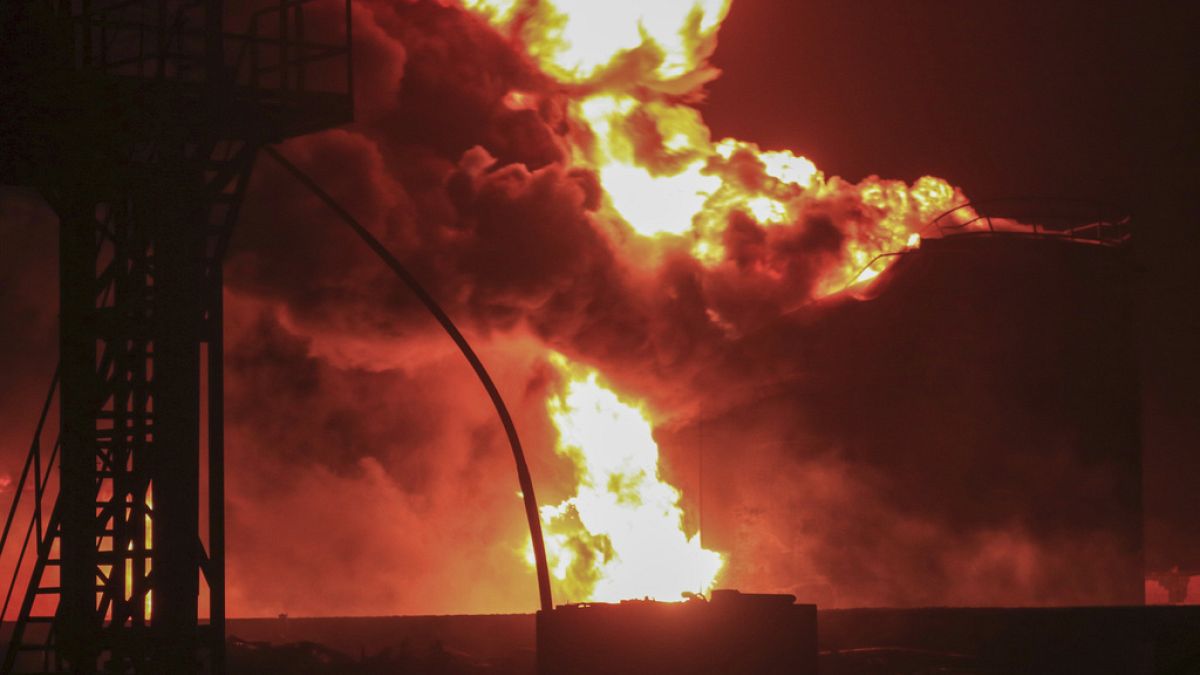A French destroyer rescued 29 mariners from the oil tanker Sounion after it came under attack by Yemen’s Houthi rebels in the Red Sea. The vessel was suspected to have been hit by small boats with small arms about 140 kilometers west of the rebel-held Yemeni port city of Hodeida. The attack caused the Sounion to drift ablaze in the ocean, but it is now at anchor in the Red Sea according to the European Union’s Operation Aspides. The French officials also destroyed a bomb-carrying drone boat in the area during the rescue operation. Although the Houthis did not claim responsibility for the attack, retaliatory US airstrikes took place in Hodeida, destroying a Houthi surface-to-air missile and radar system.
Yemen’s Houthi rebels have been targeting ships in the Red Sea as part of their campaign since the war in Gaza started in October. Over 80 vessels have been targeted with missiles and drones, resulting in the seizure of one vessel and the sinking of two others, which led to the deaths of four sailors. The rebels claim they are targeting ships linked to Israel, the US, or the UK in retaliation against Israel’s war against Hamas in Gaza. However, many of the attacked ships have little connection to the conflict. The US-led coalition has been intercepting missiles and drones launched by the rebels to prevent disruptions to the trade route that sees an estimated $1 trillion in cargo passing through each year.
The recent assassination of Hamas leader Ismail Haniyeh in Tehran has raised fears of a wider conflict in the region. The US military has responded by ordering additional F-22 fighter jets and the USS Georgia-guided missile submarine into the Middle East. The USS Theodore Roosevelt aircraft carrier strike group is also stationed in the Gulf of Oman. The situation remains tense as military presence increases in the region to deter further attacks from the Houthi rebels. The Greek shipping ministry identified the oil tanker as the Sounion, which was previously reported to be drifting ablaze after the attacks. However, the vessel is now safe at anchor in the Red Sea.
The French destroyer that rescued the mariners involved in the attack has not been named by military officials. The rescue operation highlights the dangers faced by ships navigating the Red Sea amidst ongoing conflict and attacks from rebel groups such as the Houthi rebels. The international community has been monitoring the situation closely in an effort to ensure the safety of maritime trade routes in the region. With the escalation of tensions and attacks on vessels passing through the area, measures have been taken to increase military presence and intercept potential threats from the rebels.
The attacks on ships in the Red Sea have raised concerns about the safety of maritime trade routes passing through the region. The targeting of vessels by the Houthi rebels has resulted in casualties and damages, posing a threat to international shipping. The presence of military forces from various countries, including the US and France, in the area reflects the seriousness of the situation and the need to protect vital trade routes. The ongoing conflict in the region has led to increased tensions and the possibility of further attacks, prompting governments to take measures to prevent disruptions to global trade.
In response to the attacks on ships in the Red Sea, the international community has condemned the actions of the Houthi rebels and expressed concern over the safety of maritime trade routes in the region. The targeting of vessels by rebel groups such as the Houthis poses a significant risk to the security of shipping lanes and the flow of global trade. With tensions escalating and the threat of further attacks looming, military forces have been deployed to the area to deter potential threats and ensure the safety of mariners and cargo passing through the region. The recent rescue operation by a French destroyer underscores the dangers faced by ships navigating the Red Sea and the need for heightened security measures to safeguard international trade routes.











